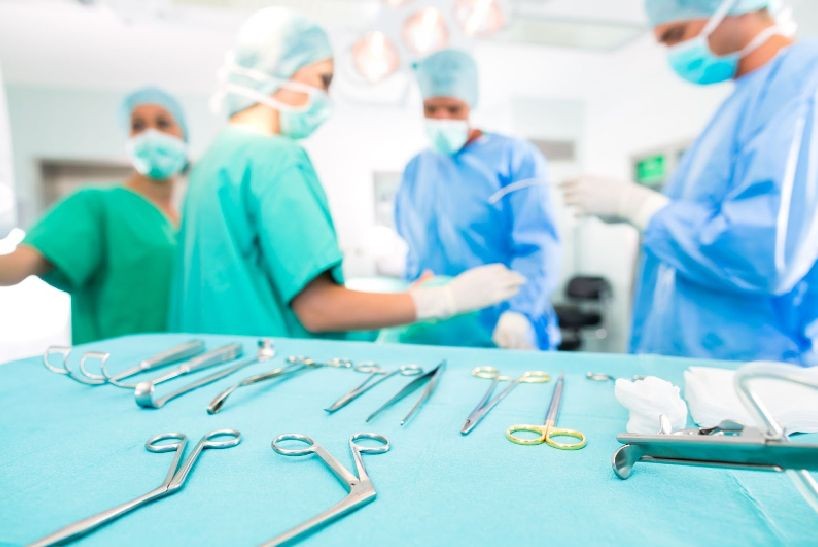Never Events in Spitex and nursing homes
Specialist topics
Never events in Spitex and nursing homes
Medical treatments are always associated with a certain level of risk. Although the risk of errors occurring can be minimized, it can never be completely eliminated. It is usually possible to rectify them without harming the patients concerned. However, there are also particularly serious incidents where this is not possible: never events in Spitex or nursing homes.

These are medical errors that cause massive harm or even death to patients. These incidents must be prevented at all costs. If appropriate measures are implemented, they are entirely avoidable. Therefore, the occurrence of such events is always an important indication of weaknesses in preventive measures. System-oriented cause-and-effect analyses should therefore be carried out.
What never events can occur in hospitals?
In Switzerland, Never Events have so far only been defined and published for hospitals. We would like to take this opportunity to present some important examples from the current list for your better understanding:
- Confusion of procedures
- Implantation of an incorrect medical device
- Unintentional retention of foreign bodies
- Loss of biological material
- Damage due to patient fixation
An insight into exemplary never events

An intervention mix-up occurs, among other things, when an intervention is performed at the wrong intervention site. Examples include a mix-up of the sides of the extremities or the paired organs. Interventions on the wrong patient due to mix-ups should also be mentioned.
If transplants are pending, there is a risk that the intended tissue will be mixed up. For example, the patient could receive bone marrow from an unsuitable donor. If, on the other hand, a pacemaker, joint prosthesis, drug pump or similar device has been inserted by mistake, then a transplant of the wrong medical device has been carried out.
If needles, swabs, cannulas or other aids remain in the body after surgery, this is referred to as unintentional retention of foreign bodies. This means that the wound has already been closed although there are still medical devices in it. These must be removed as quickly as possible.
This would be the case, for example, if a suspicious mole has been removed. This is normally sent to the laboratory so that it can be checked to see if it is a melanoma. However, if the tissue sample is lost, the patient loses valuable time in the fight against a possible cancer.
In certain medical cases, patients lose control over their own body or certain limbs. This can occur, for example, in the event of an epileptic shock or a severe panic attack. Patient harnesses can be used to ensure the safety of the person themselves and all others present.
If these are pulled far too tight, the patient may sustain injuries. In the worst case, the person may die due to strangulation. In such cases, damage is caused by patient restraint.
What are Never Events in Spitex and nursing homes?

It is no secret that there is a serious shortage of skilled nursing staff in many countries. This also applies to Switzerland. Nursing staff have to look after more and more patients at once. This means that they hardly have the chance to devote as much time to them as they would like.
In the short time they have per patient, it is not easy to notice even the smallest changes. This makes it all the more important to create an overview of which events are to be classified as Never Events. Additional measures on how these can be avoided even under extreme time pressure are also essential.
To date, there is no official list of never events in Spitex and nursing homes. Nevertheless, there are some events that should definitely be included on such a list. These include injuries or even deaths due to:
- early termination of care for patients who are unable to express their wishes without consultation with their legal representatives
- unnoticed disappearance of a resident from the nursing home
- incorrect administration of medication in terms of dosage, timing or form of administration
- Rude physical behavior towards patients
Such incidents are preventable in most cases. Employees of Spitex organizations and nursing homes as well as doctors are therefore interested in identifying existing risks at an early stage. One promising measure for this purpose is the Critical Incident Reporting System, or CIRS for short.
How can CIRS minimize the occurrence of Never Events in Spitex and other facilities?
CIRS is an error reporting system that can be used voluntarily and anonymously. Employees in the healthcare sector use this system to report critical incidents and damage that almost occurred. In doing so, they contribute significantly to a better understanding of the causes.
Following the report, an initial assessment and analysis is carried out by CIRS officers. They then provide the reporting person with appropriate feedback. This information is extremely valuable, as it holds enormous potential for preventing never events.
To date, such events have hardly ever been officially reported, as no one has asked about them. In addition, there is currently no legal protection for systems such as CIRS. This uncertainty prevents many employees in the healthcare system from talking about their own errors, even if they were unintentional.
Before error reporting systems such as CIRS can become fully established, appropriate legal protection must therefore be provided. This ensures that the institutions concerned and their employees do not have to fear being pilloried. Ultimately, the focus is on preventing fatal errors.
What advantages does CIRS offer?

Thanks to CIRS, it is possible to deal productively with errors. If a patient is harmed or even dies, this is incredibly tragic. But it would be even more tragic to learn nothing from the situation and negligently allow the error to happen again. The information that can be collected with the help of CIRS can be used to plan learning sequences and further training in a targeted manner.
An example of a practical, easy-to-use CIRS with the functions mentioned above can be found here.
Nip Never Events in the bud
One thing is certain: all players in the healthcare sector should do everything they can to eliminate never events, ideally completely. A lively exchange about these events is essential to this end. But who likes to talk about their own mistakes - especially if they have had fatal consequences?
A safeguard is therefore required, which can be anonymity on the one hand and legal protection on the other. Error reporting systems such as CIRS at least offer the possibility of sharing errors anonymously. However, there is still a long way to go in terms of jurisdiction.
We at OPAN® are also in favor of sharing information about Never Events in Spitex and nursing homes. This is the only way to achieve increased patient safety. Would you like to find out more about this issue? Do you have ideas for other Never Events in Spitex or nursing homes? Are you interested in helping to compile such a list and contributing your experience? Then please contact us at support@opanspitex.ch or support@opanhome.ch.
